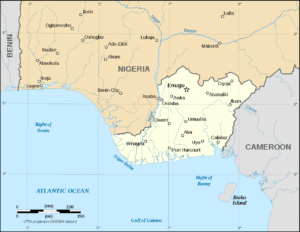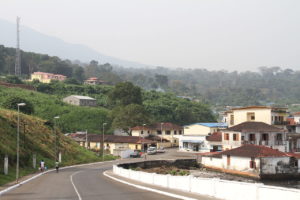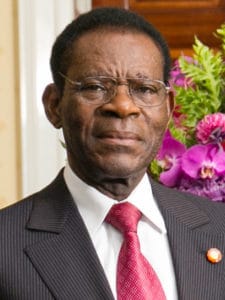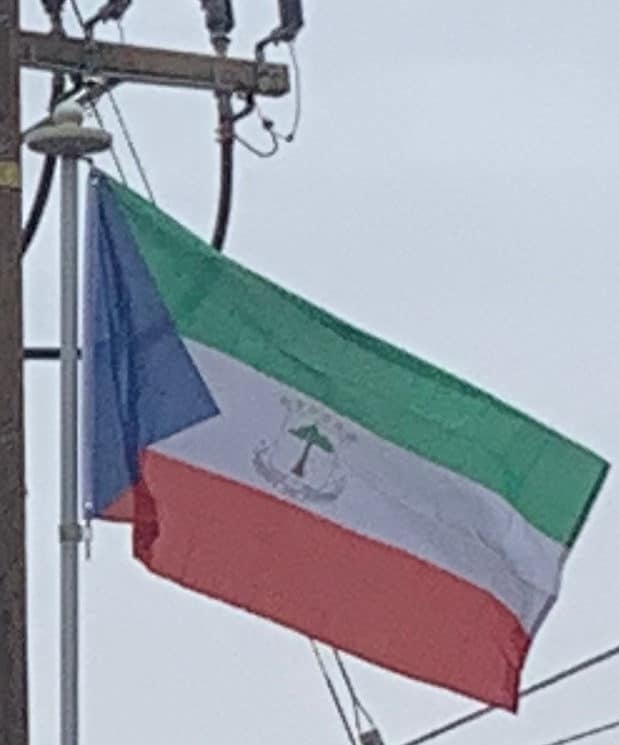
The euphoria of independence became quickly overshadowed by problems emanating from the Nigerian Civil War. Fernando Pó was inhabited by many Biafra-supporting Ibo migrant workers and many refugees from the breakaway state fled to the island, straining it to breaking point. The International Committee of the Red Cross began running relief flights out of Equatorial Guinea, but Macías quickly became spooked and shut the flights down, refusing to allow them to fly diesel fuel for their trucks nor oxygen tanks for medical operations. Very quickly the Biafran separatists were starved into submission without international backing.
After the Public Prosecutor complained about “excesses and maltreatment” by government officials, Macías had 150 alleged coup-plotters executed in a purge on Christmas Eve 1969, all of whom happened to be political opponents. Macias Nguema further consolidated his totalitarian powers by outlawing opposition political parties in July 1970 and making himself president for life in 1972. He broke off ties with Spain and the West. In spite of his condemnation of Marxism, which he deemed “neo-colonialist”, Equatorial Guinea maintained very special relations with communist states, notably China, Cuba, and the USSR. Macias Nguema signed a preferential trade agreement and a shipping treaty with the Soviet Union. The Soviets also made loans to Equatorial Guinea.
The shipping agreement gave the Soviets permission for a pilot fishery development project and also a naval base at Luba.

In return the USSR was to supply fish to Equatorial Guinea. China and Cuba also gave different forms of financial, military, and technical assistance to Equatorial Guinea, which got them a measure of influence there. For the USSR, there was an advantage to be gained in the War in Angola from access to Luba base and later on to Malabo International Airport.
In 1974 the World Council of Churches affirmed that large numbers of people had been murdered since 1968 in an ongoing reign of terror. A quarter of the entire population had fled abroad, they said, while ‘the prisons are overflowing and to all intents and purposes form one vast concentration camp’. Out of a population of 300,000, an estimated 80,000 were killed. Apart from allegedly committing genocide against the ethnic minority Bubi people, Macias Nguema ordered the deaths of thousands of suspected opponents, closed down churches and presided over the economy’s collapse as skilled citizens and foreigners fled the country.
Obiang (1979–Present):
The nephew of Macías Nguema, Teodoro Obiang deposed his uncle on 3 August 1979, in a bloody coup d’état; over two weeks of civil war ensued until Nguema was captured. He was tried and executed soon afterward, with Obiang succeeding him as a far less bloody, but still somewhat authoritarian president.

In 1995 Mobil, an American oil company, discovered oil in Equatorial Guinea. The country subsequently experienced rapid economic development, but earnings from the country’s oil wealth have not reached the population and the country ranks low on the UN human development index. Some 20% of children die before age 5 and more than 50% of the population lacks access to clean drinking water. President Teodoro Obiang is widely suspected of using the country’s oil wealth to enrich himself and his associates. In 2006, Forbes estimated his personal wealth at $600 million.
